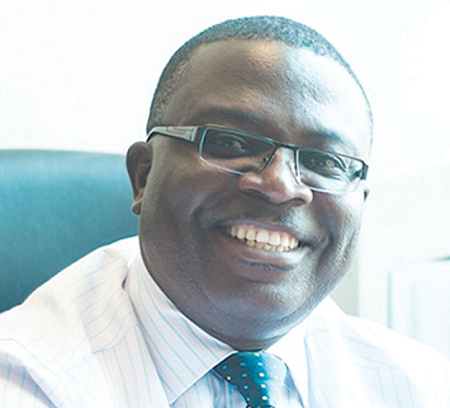
New bank levy here to stay — PwC Tax leader
A Partner, Tax Leader at PwC, Mr George Kwatia, has asked Ghanaians and banks to brace themselves for the long-haul as it seems the five per cent tax on the gross profits of banks announced in the 2021 Budget Statement will be implemented for a very long time.
He said the levy intended to help defray the cost that was incurred in the financial sector clean-up exercise did not seem to be temporary, just like the national stabilisation levy.
“If you look at the budget closely, we have already spent about GH¢21 billion and GH¢5.5 billion is being added for the Asset Management Companies (AMCs) and that brings us to closely to GH¢26.5 billion or GH¢27 billion probably more to spend.”
“Considering the fact that in the budget statement they are looking at raising GH¢1.7 billion from this levy over a three-year period (2022-2024). If you take into account what has already been incurred by the government, then it simply means to be able to defray the cost of ¢26/¢27 billion, it will require almost about 40 years,” he stated.
Mr Kwatia said this when he commented on tax proposals in the budget and some reliefs that were granted during the virtual PwC 2021 Post Budget Forum on March 17, 2021.
In the 2021 budget statement, the government proposed to increase taxes as a means of mobilising more revenue to support national development.
Mobilisation strategies
He said the budget contained three main mobilisation strategies with the first dealing with the issues relating to direct taxes.
He noted that what was introduced by way of reliefs were essentially temporal and short-term.
He cited the income tax stamps were to cover only three quarters and incidentally, the vehicle tax stamp was only suspended for two quarters of the year, while the 30 per cent corporate tax reliefs to hotels, restaurants, tour and arts entertainment were also granted for three quarters.
“Why would the government not consider to make it a whole year for the relief to be applied for the whole year rather than just three quarters?
“If you look at the industry itself, these reliefs, especially for the entertainment and tourism sector were hit heavily due to COVID-19. They have a cyclical business – the first quarter of the year they don’t have a lot entertainment activity. Most of it comes around holidays which actually gets into the second and the third quarter. That’s when these businesses are vibrant,” he explained.
Additional taxes
Associate Professor of Economics at the University of Ghana, Prof. Eric Osei-Assibey, said although the government’s strategy to mobilise more revenue by introducing new taxes was justifiable, it must be guided by the unintended consequences of the new taxes.
A Senior Tax Partner at PwC Ghana, Mr Abeku Gyan Quansah, stated the need to have dialogue on the need to rope in the informal sector into the tax net.
“If we keep saying that the informal sector is the largest component of our economy and we are not getting much from there, then, of course, we will struggle to be able to deal with our fiscal deficit.”
“There is the need to encourage that sector of the economy to contribute to the national kitty,” he said.